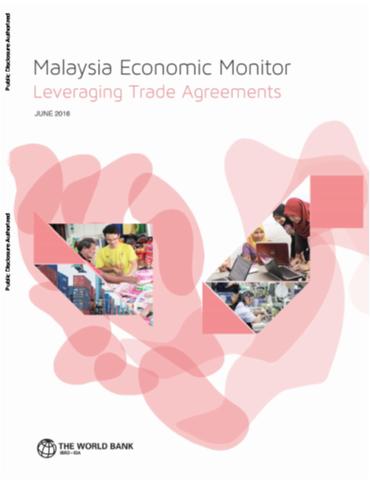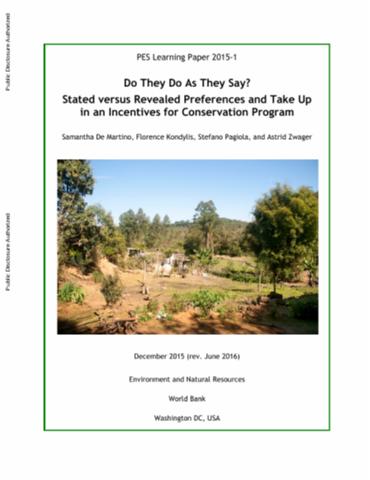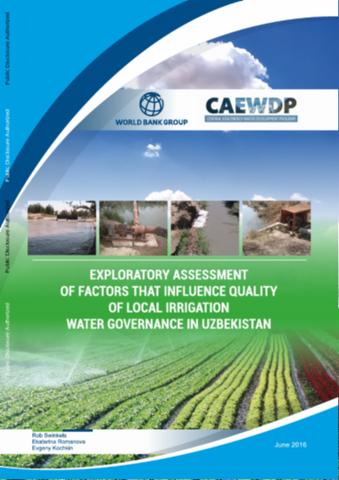The World Bank is a vital source of financial and technical assistance to developing countries around the world. We are not a bank in the ordinary sense but a unique partnership to reduce poverty and support development. The World Bank Group has two ambitious goals: End extreme poverty within a generation and boost shared prosperity.
- To end extreme poverty, the Bank's goal is to decrease the percentage of people living on less than $1.25 a day to no more than 3% by 2030.
- To promote shared prosperity, the goal is to promote income growth of the bottom 40% of the population in each country.
The World Bank Group comprises five institutions managed by their member countries.
The World Bank Group and Land: Working to protect the rights of existing land users and to help secure benefits for smallholder farmers
The World Bank (IBRD and IDA) interacts primarily with governments to increase agricultural productivity, strengthen land tenure policies and improve land governance. More than 90% of the World Bank’s agriculture portfolio focuses on the productivity and access to markets by small holder farmers. Ten percent of our projects focus on the governance of land tenure.
Similarly, investments by the International Finance Corporation (IFC), the World Bank Group’s private sector arm, including those in larger scale enterprises, overwhelmingly support smallholder farmers through improved access to finance, inputs and markets, and as direct suppliers. IFC invests in environmentally and socially sustainable private enterprises in all parts of the value chain (inputs such as irrigation and fertilizers, primary production, processing, transport and storage, traders, and risk management facilities including weather/crop insurance, warehouse financing, etc
For more information, visit the World Bank Group and land and food security (https://www.worldbank.org/en/topic/agriculture/brief/land-and-food-security1
Resources
Displaying 286 - 290 of 4906Malaysia Economic Monitor, June 2016
The MEM is the World Bank's biannual flagship publication on Malaysia. It provides analysis of recent economic developments and the near-term outlook for Malaysia. Each publication also focuses on a special topic related to Malaysia's transformation into a high-income economy. Malaysia is at the forefront of a "new generation" of trade agreements that will shape trade and investment over the next decade. The 14th MEM focuses on how Malaysia can use trade agreements to bring new opportunities to the Malaysian economy and accelerate its transition to high income status.
Do They Do As They Say?
Use of conditional cash transfers has become widespread in development policy given their success in boosting health and education outcomes. Recently, conditional cash transfers are being used to promote pro-environmental behavior. While many of these Payments for Environment Services (PES) programs have been successful, it has been hypothesized that those with less favorable outcomes have been subject to low additionality, whereby landholders already conserving their land self-select into the program.
Exploratory Assessment of Factors that Influence Quality of Local Irrigation Water Governance in Uzbekistan
Agriculture in Uzbekistan is almost entirely dependent on irrigation.
Agricultural Land Investments and Water Management in the Office du Niger, Mali
Large-scale agricultural land investments in Africa are often considered solely from the land perspective. Yet land, water and other natural resources are closely interlinked in agricultural production and in sustaining rural livelihoods. Such investments involving irrigation will potentially have implications for water availability and utilization by other users, making it imperative to regard water as an economic rather than a free good.
Connecting to Compete 2016
The LPI has provided valuable
information for policy makers, traders, and other
stakeholders, including researchers and academics, on the
role of logistics for growth and the policies needed to
support logistics in areas such as infrastructure planning,
service provision, and crossborder trade and transport
facilitation. The results of Connecting to Compete 2016
point to Germany as the best performing country, with an LPI










